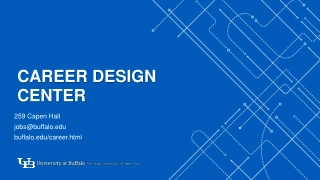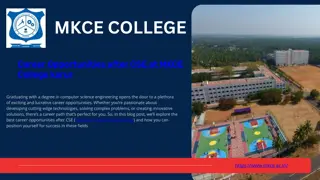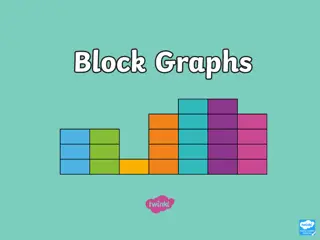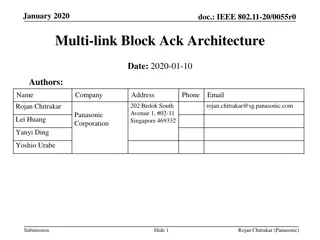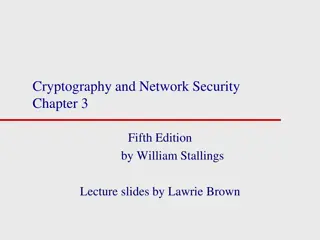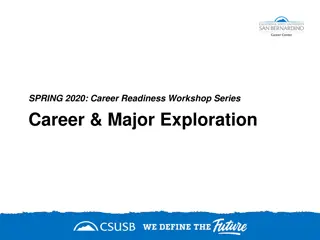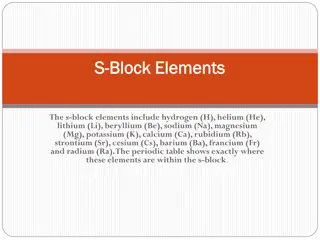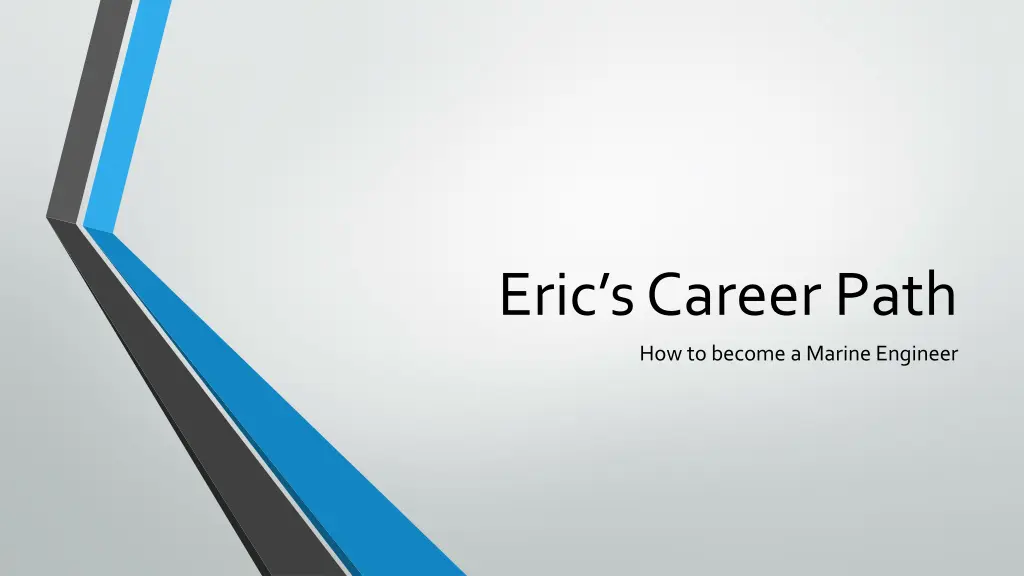
Marine Engineer Career Path and Job Description
Explore how to become a marine engineer, the job responsibilities, required skills, and future prospects in the field. Learn about the educational path, job duties like designing offshore oil rigs and large ships, and where the job is typically carried out. Discover the expected salary range, working hours, and the automation likelihood of this profession.
Download Presentation

Please find below an Image/Link to download the presentation.
The content on the website is provided AS IS for your information and personal use only. It may not be sold, licensed, or shared on other websites without obtaining consent from the author. If you encounter any issues during the download, it is possible that the publisher has removed the file from their server.
You are allowed to download the files provided on this website for personal or commercial use, subject to the condition that they are used lawfully. All files are the property of their respective owners.
The content on the website is provided AS IS for your information and personal use only. It may not be sold, licensed, or shared on other websites without obtaining consent from the author.
E N D
Presentation Transcript
Erics Career Path How to become a Marine Engineer
My Career Goals I want to become a marine engineer by 2026 To get there, I will need to: Graduate high school by 2020 June Studied engineering at the university of SFU by 2020 Get Bachelor's degree in engineering by 2024 Be an apprentice and learn some practical knowledge from other stagers by 2024 Be a marine engineer by 2026
What is a marine engineer? Describe what your job is here Marine engineers apply knowledge from a range of engineering fields to water vehicle design and production processes. List 3-5 things you would be doing regularly at this job Design and maintain offshore oil rigs Design large ships such as passenger ships and cargo ships Work on alternative energy projects, such as offshore wind turbines or tidal power.
About my future career Where is this job done? Sometimes they must go to sea on ships for testing or maintenance. Those working on power generation projects, such as offshore wind turbines or tidal power, work along the coast both offshore and on land. They also sometimes work on oil rigs where they oversee repair or maintenance of systems that they may have designed. The salary in BC province is $53,502 -$104,334 What are the usual hours for this job? > How many hours per week? What are the start and end times within a day? The usual hours for this job is unsure and depend upon a lot of factors. Usually, 8 hours a day and 56 hours for a week.
My job has a __1.1_% chance of becoming automated http://www.npr.org/sections/money/2015/05/21/408234543/will-your-job-be-done- by-a-machine (use this website to determine the likelihood of automation) Give 2 reasons why you think your job will/won t (depending on the %) become automated You have to make your own decisions when there are some emergency accidents happened You need to be flexible to meet the needs of various customers, rather than always follow the programs
My compatibility I am 83% compatible with this job. The skills this job requires are: The skills this job requires are:Communication skills. Marine engineers must be able to give clear instructions and explain complex concepts when leading teams of professionals on projects. Ingenuity. Marine engineers must employ operations analysis to create a design that will most likely perform the ship s functions, and then employ skills of critical thinking to anticipate and correct any deficiencies before the ship is built or set to sea. Interpersonal skills. Marine engineers meet with clients to analyze their needs for ship systems. Engineers must be able to discuss progress with clients to keep redesign options open before the project is too far along. Math skills. Marine engineers use the principles of calculus, trigonometry, and other advanced topics in math for analysis, design, and troubleshooting in their work. Problem-solving skills. Marine engineers must design several systems for ships that work well together. Marine engineers are expected to solve problems for their clients. They must draw on their knowledge and experience to make effective decisions.
Job Outlook In BC, the job outlook is 3 of 3 stars. Here are 2 reasons why: Because BC province is near to the Pacific Ocean and there are many harbours Parts made from coastal cities in inland areas can be sent to the harbour more quickly
Potential obstacles to getting this career The possible obstacles: English language ability Different learning style Work in a new environment and meet new friends My plan to overcome them: Read more English books and accumulation of vocabulary Adapt to the new learning environment
The training/education required for my career is: Completion of secondary school is required. Completion of a three-year cadet program in marine engineering from an approved marine training institutor. Approximately three years of experience as an engine room crew member and six months of formal training at an approved marine training institutor. Approximately three years of experience as an engine mechanic and six months of experience as an engine room crew member are required for certification as a fourth class marine engineer. A marine engineer officer certificate of competency, issued by Transport Canada, is required.
I intend to go to SFU for that career Where it is located (city, province/state, country): Burnaby, British Columbia, Canada Program(s) you would take there: Science and engineering Length of program(s):4 years Certification earned (which degree/diploma/certificate/red seal/etc.) : University diploma
High school courses required Grade 11 courses: English 11 Language 11 Science 11 Foundationsof Math 11 Grade 12 courses: English 12, Pre-Calculus 12, Chemistry 12 Physics 12
Additional admission requirements: English language requirements Completion of the last three years of full-time secondary school education in English in a country in which the principal language of instruction is English. A minimum grade of C or 60% in senior level English is required. The main reason you chose this institution for your training/education The reason that I choose SFU is because it is a very good public university especially in engineering. My dream is to be an engineer so that's exactly what I'm majoring in. Another important reason is because SFU is in BC province and it is quite near my home than other famous universities so that I can spend some time at weekends to company my parents at home
Financial Plan Total cost of program(s) , the total cost is $22000 x 4 = $88000 I am going to pay for my program: To get a part-time job in vacation to earn money My family also will pay most part of tuition
Engineers are awesome!!! Explain 3 things that really excite you about this career OR list 3 fun facts about this career I can get better income to reduce the financial burden on families I can actually use what I have learned in school I can operate machines


